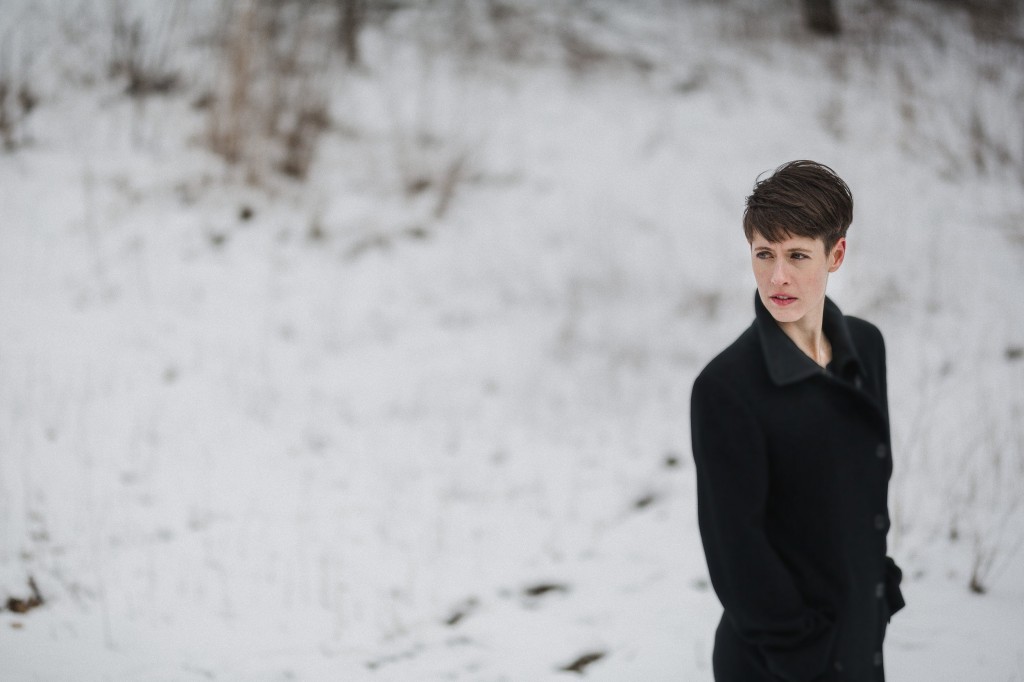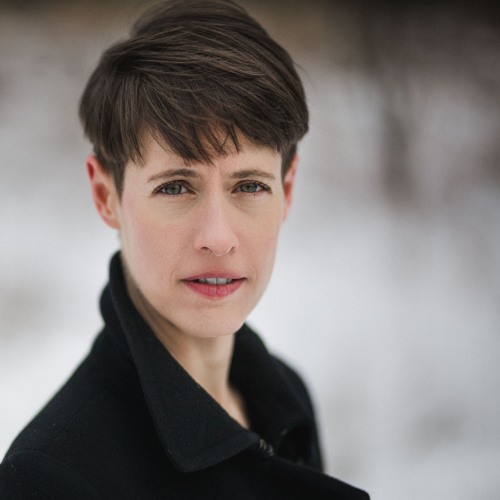
JAMES STRECKER: If you were asked for 50 words for an encyclopedia to summarize what you do, or have done, in the arts, what would you say?
CECILIA LIVINGSTON: “Cecilia Livingston is a composer specializing in music for voice.” I’m becoming more and more focused on opera creation, and I’m composing my first full-length opera, Terror & Erebus terroranderebus.com. I also write about music, particularly contemporary opera.
JS: What important beliefs do you express in or through your work?
CL: That art is a conversation about the human experience. I don’t think art has a didactic purpose, but rather that it can engage the moral imagination and let us figure things out for ourselves. I remember hearing an interview with the painter Paula Rego, who spoke beautifully about why and how we tell stories: to make sense of the world. I think we create art and turn to art to make sense of our world, to try to understand it and each other, our humanness.
JS: Name two people, living or dead, whom you admire a great deal and tell us why for each one.
CL: Jane Austen, for her remarkable shrewdness about other human beings, and her cocked-eyebrow satirical humour about them.
Steve Reich, because Music for 18 Musicians might be the most important musical work of the twentieth century. It astonishes me every time I hear it. Plus, he’s a brilliant raconteur.
JS: How have you changed since you began to do creative work?
CL: I’ve learned to trust myself more, to trust that I might see and understand things in the world in ways that other people find surprising and interesting, and that is useful to their lives.
JS: What are your biggest challenges as a creative person?
CL: I’m going to quote Robert Hughes here: “We have had a gutful of fast art and fast food. What we need more of is slow art, art that holds time as a vase holds water, art that grows out of modes of perception and making, whose skill and doggedness make you think and feel: art that isn’t merely sensational, that doesn’t get its message across in ten seconds, that isn’t falsely iconic, that hooks onto something deep-running in our natures.”
Time for creating this kind of art is very, very hard to protect: making that time requires a real doggedness of its own, a real stubbornness.
JS: Please describe at least one major turning point in your life.
CL: A concert at which my family first heard a particular piece I’d written. They have always been wonderfully supportive, but I felt like it was the first time they truly, absolutely, and completely understood why I do what I do. I felt in that moment entirely “seen”, and that they gave me their blessing. For me that was the turning point of my creative life.
JS: What are the hardest things for an outsider to understand about what you do?
CL: How very bizarre it is to turn back and forth between the kind of deep introversion that composition can demand, and the extroversion that networking, public appearances, and all the other “admin” of a compositional life demand. It’s a very, very strange sensation.
JS: How and why did you begin to do creative work in the first place?
CL: I’m not sure, to be honest. Apart from a wooden theme-and-variations exercise in high school, now best forgotten, I didn’t begin to compose until well into my undergrad. But I’ve always loved “putting on a show”, so it’s no surprise that I love opera and creating opera; I probably got the bug for that from my elementary school musical (we’d get out of classes for several weeks to rehearse, really!) and being a part of the Pia Bouman School of Ballet’s Nutcracker every year when I was young.
JS: What haven’t you attempted as yet that you would like to do and please tell us why?
CL: I’d like to do more work with film; I did my first project along those lines for Nuit Blanche 2017, and it was fascinating. Definitely an area of music creation that I want to explore more. Also, I’ve never been in a band.
JS: What are your most meaningful achievements?
CL: Winning the 2018 Toronto Emerging Composer Award. I’m incredibly humbled by this, and incredibly proud of it too. It’s a recognition not only of the person but of the work, past and future: it is such a vote of confidence in my opera, Terror & Erebus, and such a beautiful gesture from my colleagues in this city where I grew up.
JS: What advice would you give a young person who would like to do what you do?
CL: That the most important qualities for any artist are curiosity and tenacity: they both keep you going. Being an artist can be a really difficult life – very uncertain, very lonely, very unconventional – and unless it is a calling you absolutely cannot ignore, it might be better to do something else.
JS: Of what value are critics?
CL: Good critics illuminate. Take Alex Ross, who I think is a superb critic. He writes about music with tremendous insight, revealing connections and details, strengths and weaknesses, and he also is able to suggest musical experience in language – the latter is usually a poet’s job. His kind of criticism helps us navigate old and new work, and to begin to decide what is valuable and what is not.
JS: What do you ask of your audience?
CL: to be open to aesthetic experience, and not just sit there waiting to go home. I get frustrated when people only want to feel safe – when feeling safe means “not being moved”. I value the social ritual of arts event attendance, sure, but as a creator I want an audience that is going to participate in the conversation the art allows: that can be unsettling, comforting… it’s an unknown each time, yes; it’s a risk each time, yes.
JS: What specifically would you change about what goes on in the world and the arts?
CL: More money for the arts: because good art takes time and focus and protecting the time and focus to create great art costs money. And I’d fund music education in public schools. I’m frustrated that we know how beneficial it is to education and learning, and to shaping a thoughtful, engaged citizenry, and yet it’s always the easy budget cut. Ugh.
JS: If you could relive one experience from your creative life, what would it be and why would you do so?
CL: The three weeks I spent as a fellow at Bang On a Can’s summer festival, basically living in the Massachusetts Museum of Contemporary Art: I’ll never forget hearing Mark Stewart play Steve Reich’s Electric Counterpoint one afternoon in a sun-soaked Sol LeWitt gallery, with Reich himself sitting on a folding chair a few feet in front of me.
JS: Tell us what it feels like to be a figure who is presented somehow in the media. What effect does this presence have on you?
CL: So far, it’s been a positive experience, and very encouraging. I’m happy that this has brought new collaborations and new friends, and that it has brought my music to new audiences. Opening my inbox to find a message from someone who has come across my work and learning what it means to them… that can keep me going when I need it most.
JS: Name two places you would like to visit, one you haven’t been to and one to experience again and briefly tell us why.
CL: I really want to go to Australia. I’m enchanted by its landscapes. Probably the Canadian in me, liking big spaces. I also really want to go back to Saskatchewan, basically for the same reasons.
JS: Please tell us about one or more projects that you have been working on, are preparing, or have recently completed. Why do they matter to you and why should they matter to us?
CL: I’m working on my first full-length opera, Terror & Erebus. It’s a dream project, and it brings together some of my favourite people: TorQ Percussion Quartet and Opera 5. Every meeting is such a pleasure with these folks, and it’s a wonderful balance to the isolation that composing the score is demanding of me. The opera explores the last days of the Franklin Expedition to the Arctic: it’s a powerful story and a really important part of Canada’s history. (More at terroranderebus.com)
JS: Finally, what do you yourself find to be the most intriguing and/or surprising thing about you?
CL: I love airports.

